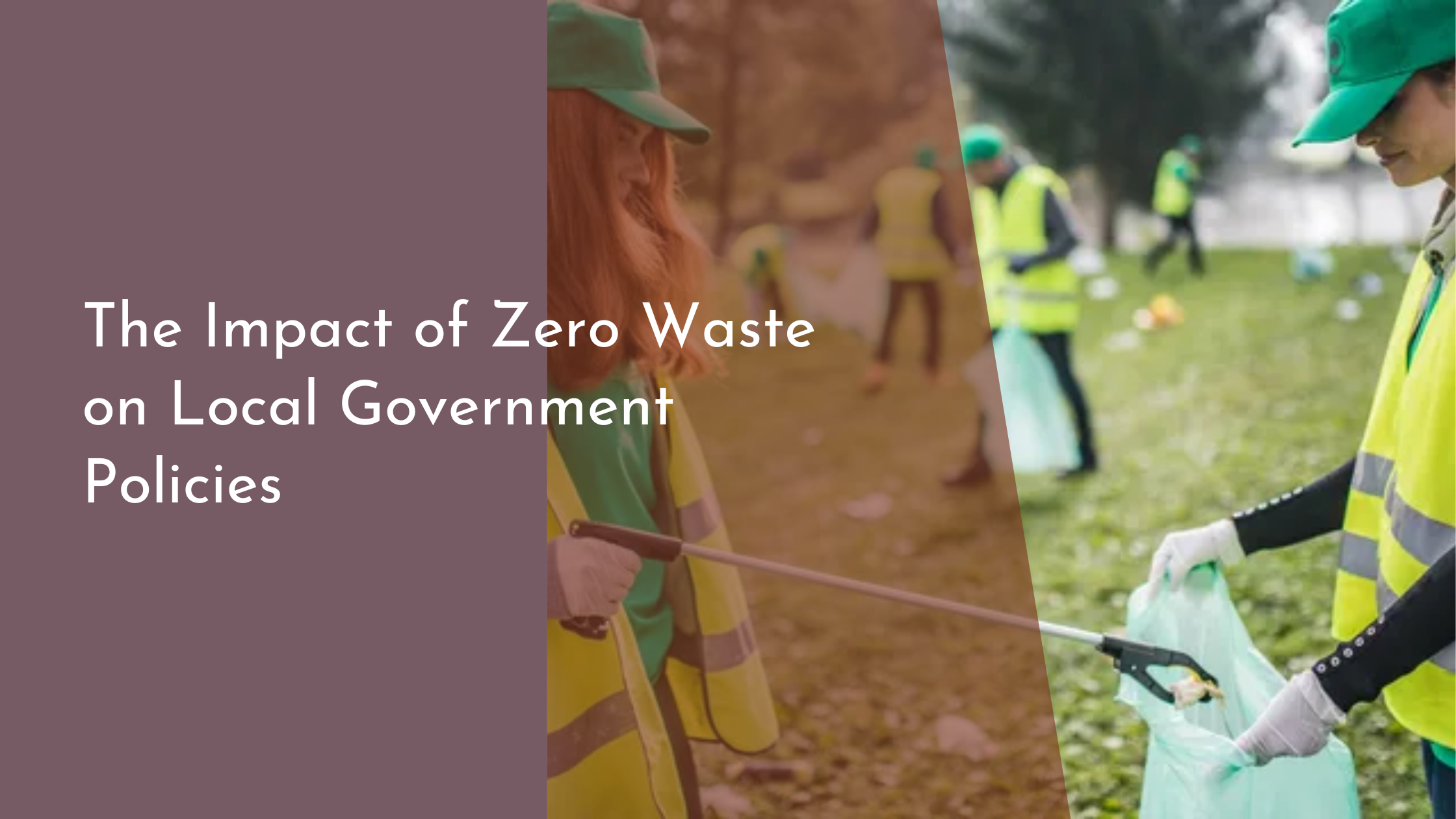The Impact of Zero Waste on Local Government Policies
The concept of zero waste has been gaining significant traction in recent years, with environmentalists, policymakers, and communities all advocating for a more sustainable approach to waste management. As the world confronts mounting environmental challenges, local governments are increasingly recognizing the importance of adopting zero waste strategies to mitigate ecological damage and promote sustainable development. In this article, we will explore the essence of zero waste, examine current local government policies, discuss the benefits of zero waste for communities, and offer insights into embracing a zero waste future.
Understanding Zero Waste: A Brief Overview
Zero waste is an innovative approach to waste management that aims to eliminate waste through a comprehensive redesign of resource life cycles. The goal is to ensure that all products are reused, recycled, or composted, thereby minimizing the need to send waste to landfills or incinerators. This philosophy extends beyond simple recycling, emphasizing the importance of rethinking production, consumption, and disposal processes to create a circular economy. By adopting zero waste principles, communities can significantly reduce their environmental footprint, conserve natural resources, and foster a culture of sustainability.
The zero waste movement is underpinned by the “three Rs”: Reduce, Reuse, and Recycle. Reducing involves minimizing consumption and avoiding unnecessary packaging, while reusing focuses on finding new purposes for old items rather than discarding them. Recycling is the process of transforming waste materials into new products, thus diverting them from landfills. Beyond the three Rs, zero waste also encourages composting organic materials, a practice that enriches soil and reduces greenhouse gas emissions. Together, these practices form a holistic approach to waste management that is both environmentally and economically beneficial.
Local Government Policies: The Current Landscape
Local governments play a critical role in implementing zero waste initiatives, as they are responsible for waste management at the community level. Across the globe, many municipalities have started to integrate zero waste goals into their policymaking processes, crafting regulations that mandate recycling, composting, and the reduction of single-use plastics. Some cities have established ambitious targets, aiming to achieve zero waste by specific deadlines. These policies not only promote environmental sustainability but also encourage innovation and create economic opportunities in the waste management sector.
However, the transition to zero waste policies is not without its challenges. Local governments often face hurdles such as budget constraints, lack of infrastructure, and resistance from businesses or consumers accustomed to traditional waste disposal methods. To overcome these obstacles, many localities are investing in public education campaigns, developing partnerships with private sector companies, and seeking support from higher levels of government. By fostering collaboration and sharing best practices, local governments are gradually building momentum toward a zero waste future.
Benefits of Zero Waste for Local Communities
The adoption of zero waste policies brings numerous benefits to local communities, enhancing both environmental and economic well-being. Environmentally, zero waste practices help reduce pollution, conserve natural resources, and decrease greenhouse gas emissions. By diverting waste from landfills and incinerators, communities can prevent the release of harmful toxins and pollutants into the air, water, and soil, thus protecting public health and preserving biodiversity. Additionally, zero waste initiatives promote sustainable resource management, ensuring that future generations have access to the materials they need.
Economically, zero waste policies can drive innovation, create jobs, and stimulate local economies. The recycling and composting industries, for instance, are labor-intensive, offering employment opportunities in collection, sorting, and processing. Furthermore, by reducing waste disposal costs and increasing resource efficiency, businesses can improve their bottom lines and enhance their competitiveness. Communities that embrace zero waste principles often become hubs for sustainable innovation, attracting businesses and entrepreneurs who are eager to contribute to a greener, more resilient economy.
Concluding Thoughts: Embracing a Zero Waste Future
As the world grapples with environmental challenges such as climate change and resource depletion, embracing a zero waste approach is becoming increasingly imperative. Local governments have a crucial role to play in this transition, crafting policies that promote sustainable waste management practices and support community-led initiatives. By setting ambitious zero waste targets and investing in education and infrastructure, municipalities can lead the charge toward a more sustainable future.
In conclusion, the journey to zero waste is not without its challenges, but the rewards are well worth the effort. By reimagining waste as a resource and fostering a culture of sustainability, communities can protect the environment, boost local economies, and improve the quality of life for their residents. As more cities and towns join the zero waste movement, the vision of a cleaner, greener future becomes increasingly attainable—a future where waste is not a burden, but an opportunity for growth and innovation.
In embracing zero waste, local governments can unlock a multitude of benefits, from reducing environmental impacts to creating vibrant, sustainable communities. As the movement gains momentum, it is inspiring to witness the creative solutions and collaborative efforts emerging from cities and towns across the globe. By championing zero waste values and practices, local governments can lead the way toward a more sustainable and prosperous future, ensuring that both people and the planet can thrive for generations to come.

